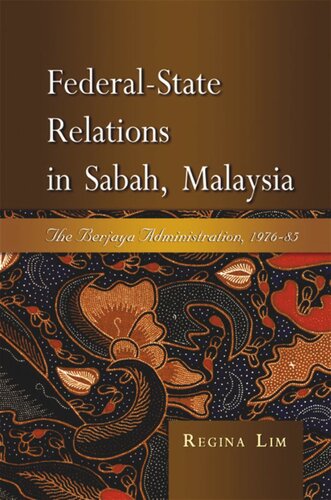

Most ebook files are in PDF format, so you can easily read them using various software such as Foxit Reader or directly on the Google Chrome browser.
Some ebook files are released by publishers in other formats such as .awz, .mobi, .epub, .fb2, etc. You may need to install specific software to read these formats on mobile/PC, such as Calibre.
Please read the tutorial at this link: https://ebookbell.com/faq
We offer FREE conversion to the popular formats you request; however, this may take some time. Therefore, right after payment, please email us, and we will try to provide the service as quickly as possible.
For some exceptional file formats or broken links (if any), please refrain from opening any disputes. Instead, email us first, and we will try to assist within a maximum of 6 hours.
EbookBell Team

4.0
46 reviewsThis book is a study of the political development of the Malaysian state of Sabah under the administration of Parti Bersatu Rakyat Jelata Sabah (Berjaya – Sabah People’s United Party), which controlled the state legislature between 1976 and 1985. It attempts to disentangle the three dominant themes within social scientific studies of Sabah: the issues of federalism, the politics of ethnicity, and the political economy of development. The book argues that the emergence of a developmental discourse under the Berjaya regime in Sabah can largely be traced to its failure to reconcile the localized ethnic politics of Sabah with the demands of a strong central state and thus the need to find an alternative strategy of political support and control. While this strategy proved effective when developmental growth was high during the first Berjaya administration (1976-81), the relative collapse of the state economy from 1982 onwards exposed its ethnic predilections and prefigured declining support for the regime, particularly among the non-Muslim bumiputera groups. Despite the consolidation of federal support for Berjaya under the Mahathir administration, the unravelling of the Berjaya project was by this stage unstoppable. In the final analysis, the attempt to create a more compliant state administration under Berjaya came undone precisely because it failed to take into account the localized dimension of politics in Sabah.